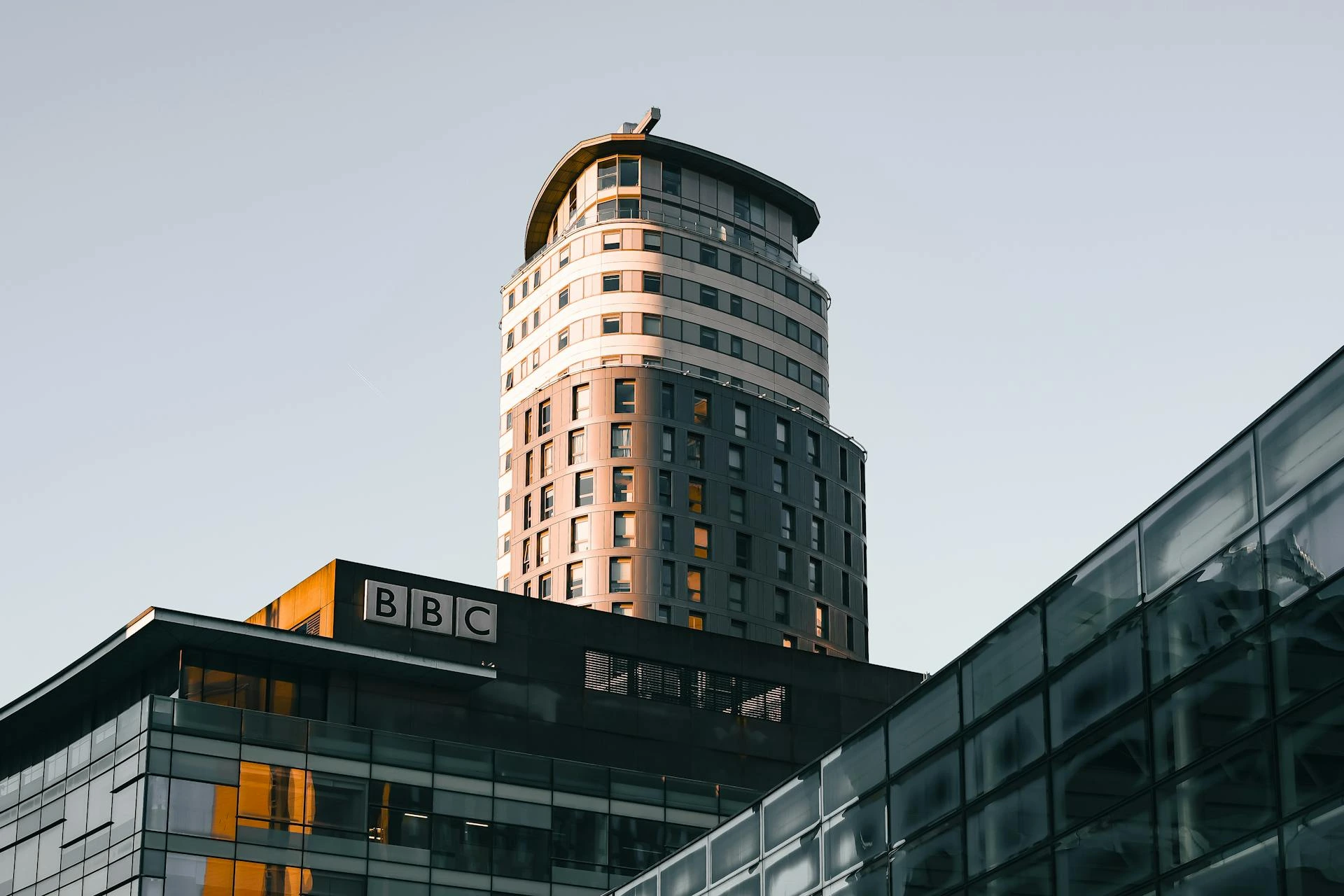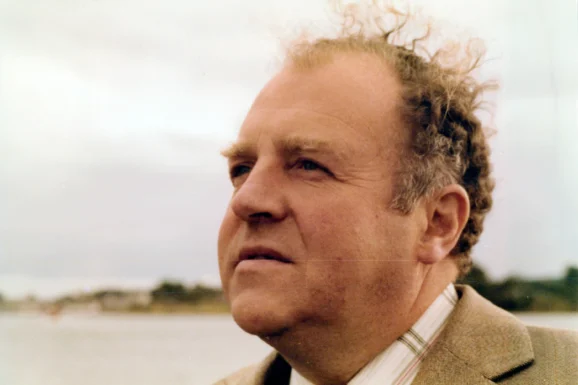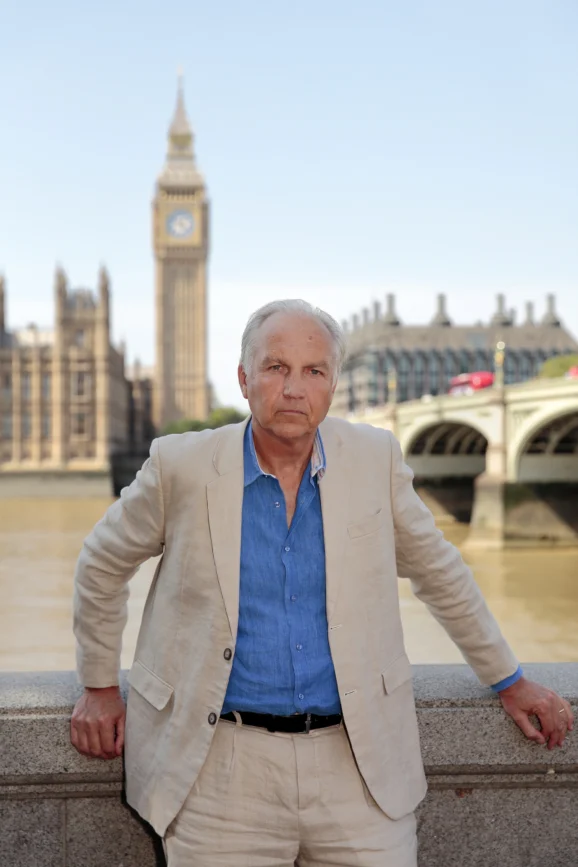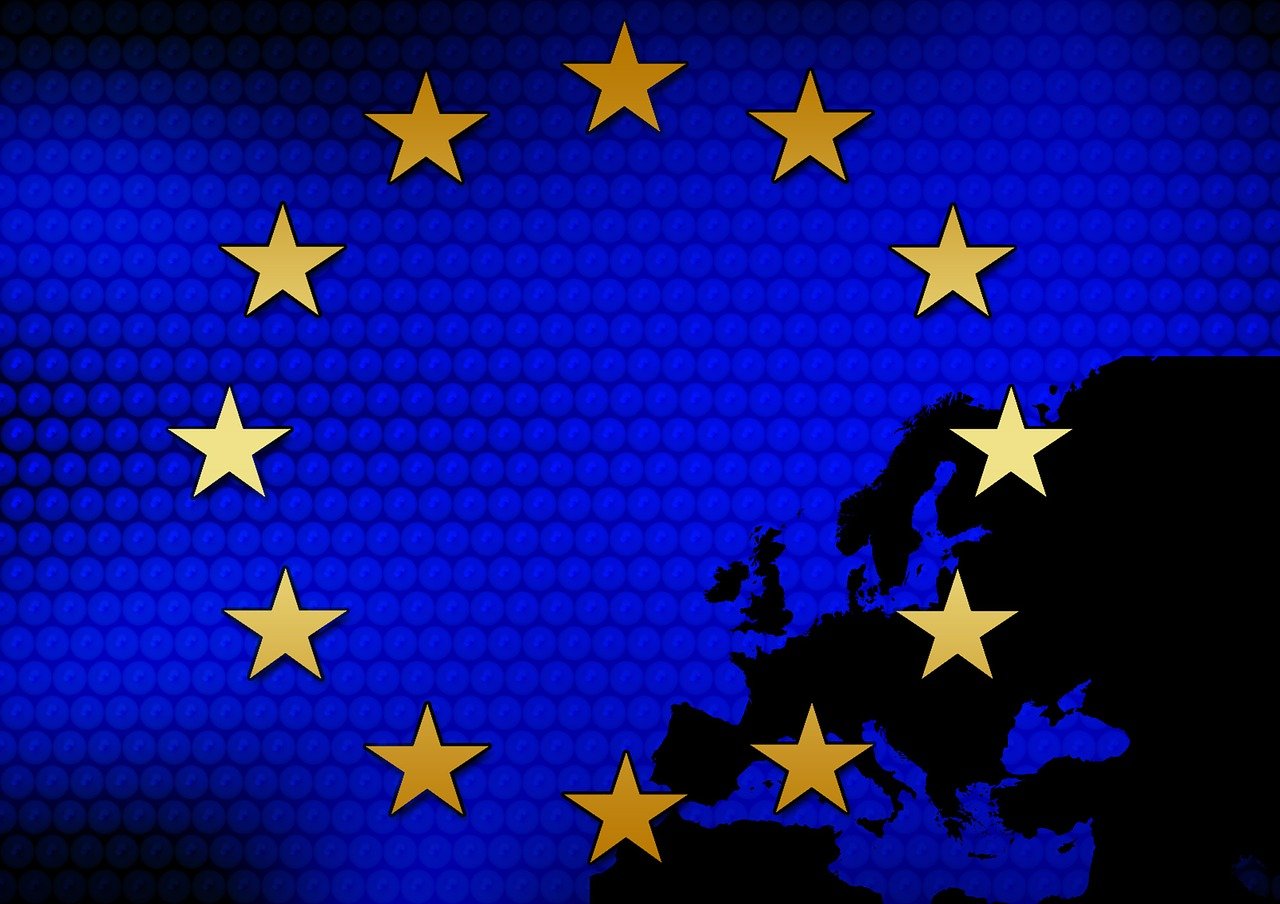The BBC lacks warrior leaders and without them, it could soon lose what’s left of its independence

John E. Kaye
- Published
- Opinion & Analysis

The BBC was built on a platform of keeping the public informed, free from political or populist influence, but this required ‘warrior’ leaders who came from public service, journalism, or the military. Today’s leadership, drawn from the corporate world, too easily bow to pressure and if this continues, the Corporation risks losing its independence and becoming just another ad-funded channel, writes The BBC’s Last Warrior-Statesman author Stephen Francis
The departure of long-serving Match of the Day presenter Gary Lineker has been deeply embarrassing for the BBC.
Lineker really had no choice but to step back after accidentally retweeting a video on Zionism that included a picture of a rat, historically used as an antisemitic insult. For all his apologies, it crossed a line that the BBC, so closely associated with its flagship presenters, couldn’t easily ignore.
But it’s not the first time that Lineker has left the broadcaster red-faced and on the defensive. In 2023, he criticised the government’s asylum policy and was taken off air. But it didn’t last long. A staff rebellion by sports presenters and a public outcry quickly led to the BBC doing a U-turn and bringing him back to the screen.
The BBC bowed to public opinion when, in hindsight, it would have been wiser to resist and, to me, that is symptomatic of a fundamental change that has occurred within the public broadcaster between the late 1980s and today.
There is no longer a willingness to resist pressure — be it from licence-fee payers, the Twitterati or politicians — when the BBC’s fundamental purpose, to keep the nation informed, impartially and objectively, is challenged.
The BBC is no longer behaving like a Fourth Estate, a trusted pillar of democracy that holds power to account without fear or compromise. Instead, it panders to the ‘Fifth Estate — the social media masses and influencers, bloggers, and other digital voices — and like them, seeks to court favour wherever possible.
The broadcaster wants to be liked, not respected, and is largely reactive, not proactive, focused on maintaining its social capital over and above its editorial integrity. It has recently dropped its world-renowned flagship current affairs programme, HARDtalk, in favour of directing the funds elsewhere for higher ratings.
The tragedy is that this slow drift towards populism over principle will have very real consequences. Unless it changes course, the BBC is heading for a future where it no longer exists in any recognisable form. That moment may arrive sooner than many expect.
The BBC’s Royal Charter — the legal document that sets out its mission, independence and funding — is up for review in 2027. Unless it can make a compelling case to Parliament and the public for its continued role as a non-commercial, publicly funded broadcaster, that Charter will not be renewed. Or, if it is, it will be significantly weakened.
So what would that mean? Without the Royal Charter and the accompanying licence fee, the BBC would have to fund itself like any other media company. That means adverts, sponsorships and other commercial deals. Everything that currently sets the BBC apart would be stripped away. It would become another ITV or Channel 5, just with a bigger archive to draw upon for re-runs.
And if you lose the Charter, you lose the BBC’s institutional guarantee of impartiality. You lose the firewall between journalism and politics, and the organ of our democracy that made sure our leaders were always held to account.
But the BBC can avoid this fate by rediscovering its backbone. At one time it was celebrated around the world as a paragon of public broadcasting, admired for its uncompromisable resolve.
This was, ultimately, thanks to its leaders. Up to the mid-1980s, the BBC was led by a very different breed of executives to those of today.
For the first sixty years of its life, the BBC grew stronger and more influential because it worked closely with and within the Establishment. Its Chairmen were senior politicians, civil servants or diplomats. Its Directors-General were often former military or with foreign office or civil service backgrounds. They had deep networks in the British Establishment and overseas.
Sir William Haley, Director-General (DG) from 1944 to 1952, was a classic Establishment man, He had worked in government communications during the Second World War and during his BBC tenure, was a staunch defender of the Corporation’s independence. Likewise, Hugh Greene, Director-General (DG) from 1960 to 1969 and famed for bringing the BBC into the modern era (“opening the windows” and “dissipating the ivory-tower stuffiness” within the Corporation). He had served in British intelligence during the Second World War before becoming a foreign correspondent and then its first Director of News and Current Affairs. His successor, Sir Charles Curran 1969-77, served in the Indian Army and then in the BBC Monitoring Service, then funded by the Foreign Office and closely aligned with the security services. He then ran the External (now World) Service before his appointment as DG. Sir Ian Trethowan, DG from 1977 to 1982, meanwhile, had close ties to the civil service and government through his years in political journalism, particularly through his role as political editor at ITN which had given him acutely tuned political antennae, as well as a career in news and current affairs.
These were leaders steeped in broadcasting and no strangers to the corridors of power. They understood the editorial coalface, had worked through crises and knew what it meant to defend the Corporation’s independence in practice, not just in theory.
This allowed the BBC to be strong and independent yet at the same time work the subtleties of behind-the-scenes diplomacy when conflicts arose. It sounds old-fashioned but they and their counterparts in Westminster, Whitehall and in the embassies around the world held the same values and knew each other well, often having fought together. There was a consequent informality that allowed the BBC’s status as a publicly funded broadcasting service — with unparalleled global reach and influence — to work in harmony with British interests overseas and at home.

My father, Sir Richard (‘Dick’) Francis, pictured above, was cut from the same cloth. He served as Controller, Northern Ireland during the height of the Troubles and was on the BBC Board of Management for nine years, initially as the BBC’s second Director, News and Current Affairs (after Sir Hugh Greene twenty years beforehand) and later as Managing Director of BBC Radio.
He, like many others of that era, had a military background, being called up for National Service, and had earned his stripes in frontline journalism. He reported from many conflict zones, being held at gunpoint or bombed many times. He saw the dangers of propaganda up close. And he believed passionately in the BBC’s responsibility to inform the public truthfully, fearlessly and without buckling to any political party or populist pressure.
My new memoir of Sir Richard, The BBC’s Last Warrior-Statesman, tells both his story and that of the BBC during its Golden Age. It was a time when there were frequent clashes with government, especially so once Margaret Thatcher became PM. There were crises and scandals but the BBC held its ground. It had confidence in its mission and accepted that it must be unpopular in order to be trustworthy. He famously retorted to criticism by Margaret Thatcher in the height of the Falklands War, “The BBC needs no lessons in patriotism from this government.”
Since the late 1980s, all of this has changed. Directors-General and department Heads are now drawn from the business world or from domestic commercial media, and rarely have any diplomatic, military or international experience. Their model of the world is that one outsources governance to the capital markets, the hunt to maximise profit and the religious conviction that the customer is king. So although they may be excellent media professionals, that alone is not enough to lead the BBC. We see the result. The BBC must chase whatever is popular, in direct contradiction to the founding principles which stated that the BBC should strive to represent the good, not the popular.
In short, there are no more warrior-statesmen or stateswomen leading and protecting the BBC, and unless they return, and soon, the British Broadcasting Corporation will fall to its enemies and lose its independence. Should this happen, the fact we’ll see adverts running between EastEnders and Strictly will be the least of our worries. The first and more formidable media watchdog of British democracy — the eyes and ears that have always kept the public informed — which has reinforced why we are proud to be British, will have been put down.

The BBC’s Last Warrior-Statesman: Sir Richard Francis and the Battle to Save the Corporation from Thatcher — and Itself by Stephen R. W. Francis is out now on Amazon, priced £19.99 in paperback and £9.99 as an eBook. For more information, visit www.stephenrwfrancis.com
Main image: Nathan J Hilton/Pexels
RECENT ARTICLES
-
 Europe cannot call itself ‘equal’ while disabled citizens are still fighting for access
Europe cannot call itself ‘equal’ while disabled citizens are still fighting for access -
 Is Europe regulating the future or forgetting to build it? The hidden flaw in digital sovereignty
Is Europe regulating the future or forgetting to build it? The hidden flaw in digital sovereignty -
 The era of easy markets is ending — here are the risks investors can no longer ignore
The era of easy markets is ending — here are the risks investors can no longer ignore -
 Is testosterone the new performance hack for executives?
Is testosterone the new performance hack for executives? -
 Can we regulate reality? AI, sovereignty and the battle over what counts as real
Can we regulate reality? AI, sovereignty and the battle over what counts as real -
 NATO gears up for conflict as transatlantic strains grow
NATO gears up for conflict as transatlantic strains grow -
 Facial recognition is leaving the US border — and we should be concerned
Facial recognition is leaving the US border — and we should be concerned -
 Wheelchair design is stuck in the past — and disabled people are paying the price
Wheelchair design is stuck in the past — and disabled people are paying the price -
 Why Europe still needs America
Why Europe still needs America -
 Why Europe’s finance apps must start borrowing from each other’s playbooks
Why Europe’s finance apps must start borrowing from each other’s playbooks -
 Why universities must set clear rules for AI use before trust in academia erodes
Why universities must set clear rules for AI use before trust in academia erodes -
 The lucky leader: six lessons on why fortune favours some and fails others
The lucky leader: six lessons on why fortune favours some and fails others -
 Reckon AI has cracked thinking? Think again
Reckon AI has cracked thinking? Think again -
 The new 10 year National Cancer Plan: fewer measures, more heart?
The new 10 year National Cancer Plan: fewer measures, more heart? -
 The Reese Witherspoon effect: how celebrity book clubs are rewriting the rules of publishing
The Reese Witherspoon effect: how celebrity book clubs are rewriting the rules of publishing -
 The legality of tax planning in an age of moral outrage
The legality of tax planning in an age of moral outrage -
 The limits of good intentions in public policy
The limits of good intentions in public policy -
 Are favouritism and fear holding back Germany’s rearmament?
Are favouritism and fear holding back Germany’s rearmament? -
 What bestseller lists really tell us — and why they shouldn’t be the only measure of a book’s worth
What bestseller lists really tell us — and why they shouldn’t be the only measure of a book’s worth -
 Why mere survival is no longer enough for children with brain tumours
Why mere survival is no longer enough for children with brain tumours -
 What Germany’s Energiewende teaches Europe about power, risk and reality
What Germany’s Energiewende teaches Europe about power, risk and reality -
 What the Monroe Doctrine actually said — and why Trump is invoking it now
What the Monroe Doctrine actually said — and why Trump is invoking it now -
 Love with responsibility: rethinking supply chains this Valentine’s Day
Love with responsibility: rethinking supply chains this Valentine’s Day -
 Why the India–EU trade deal matters far beyond diplomacy
Why the India–EU trade deal matters far beyond diplomacy -
 Why the countryside is far safer than we think - and why apex predators belong in it
Why the countryside is far safer than we think - and why apex predators belong in it


























